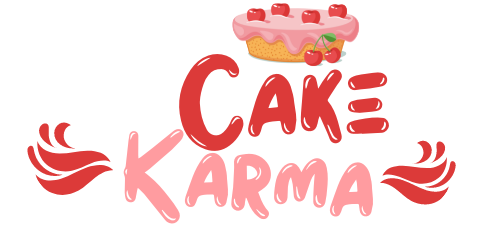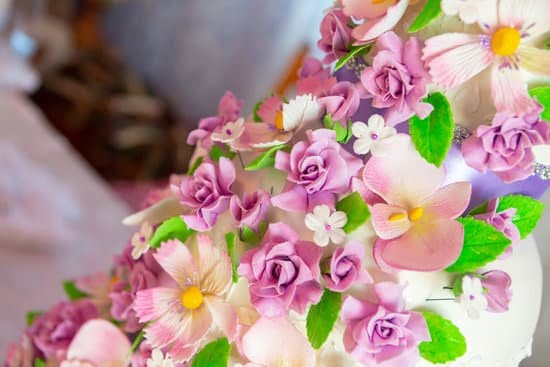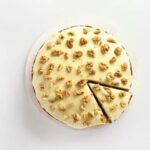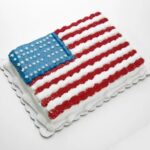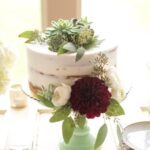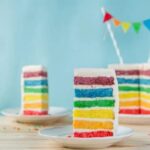What do cake decorators do? If you’ve ever marveled at beautifully decorated cakes and wondered about the individuals behind these impressive creations, then you’re in for a treat. Cake decorating is both an art and a skill that requires creativity, precision, and patience. In this article, we will explore the world of cake decorating, from understanding the role and responsibilities of a cake decorator to learning about essential skills and qualities required for success in this profession.
Cake decorating is not just about making a cake look visually appealing; it’s also about using various techniques, tools, and styles to create edible works of art. From piping bags to fondant molds, there are essential tools and equipment that cake decorators use to bring their designs to life. Additionally, different techniques such as buttercream, fondant, and royal icing offer a wide range of creative possibilities for decorating cakes.
Aspiring cake decorators will also benefit from learning about the current trends in cake decorating – from classic designs to modern innovations. While the job of a cake decorator can be challenging with long hours and high-pressure situations, the rewards come in the form of customer satisfaction and the joy of creating something truly special for special occasions.
For those interested in pursuing a career in this field, we will also provide tips on where to find courses, resources, and how practice makes perfect in honing your skills as a professional cake decorator.
The Role of a Cake Decorator
- Designing and planning: Cake decorators need to have a keen eye for design and be able to translate their ideas into edible works of art. Whether it’s for a wedding, birthday, or special event, they must collaborate with clients to understand their vision and create customized designs.
- Baking and preparation: In addition to decorating, cake decorators are often involved in the baking process as well. They must be skilled in mixing batters, baking cakes to perfection, and preparing them for decoration.
- Decorating techniques: From piping intricate designs with buttercream or royal icing to sculpting shapes with fondant, cake decorators use a variety of techniques to bring their creations to life. They also work with color palettes and edible decorations to enhance the overall aesthetic of the cake.
Cake decorators play an integral role in making special occasions memorable through their unique creations. Their work requires technical skills combined with an artistic touch, making it a truly rewarding profession for those who are passionate about the art of baking and design.
Essential Skills and Qualities of a Cake Decorator
Cake decorating is a highly creative and detail-oriented profession that requires a unique set of skills and qualities. A cake decorator is responsible for not only creating visually appealing designs but also ensuring that the finished product tastes delicious.
Creativity is an essential skill for cake decorators, as they are often tasked with bringing their client’s vision to life through edible art. From intricate wedding cakes to whimsical birthday creations, cake decorators must be able to think outside the box and come up with unique designs.
Attention to detail is another crucial quality for cake decorators. Every swirl of frosting, placement of edible decorations, and smoothness of fondant must be carefully considered and executed. One small mistake can significantly affect the overall appearance of the cake, so precision and focus are key aspects of this role.
Patience is perhaps one of the most important qualities for a cake decorator. Decorating a single cake can take hours, especially for elaborate designs or large-scale projects. It requires patience to meticulously work on every aspect of the decoration, as well as to handle any unexpected challenges that may arise during the process.
In addition to these skills and qualities, having a passion for baking and creativity is vital for success in this field. Cake decorators often juggle multiple orders at once, so being able to manage time effectively while maintaining high standards of quality is essential. The combination of creativity, attention to detail, and patience makes cake decorating a challenging yet incredibly rewarding profession.
| Skills | Qualities |
|---|---|
| Creativity | Attention to Detail |
| Patience | Passion for Baking |
Tools and Equipment of the Trade
Cake decorating is a specialized field that requires the use of various tools and equipment to create intricate designs and masterful creations. These tools are essential for cake decorators to bring their creative visions to life and produce stunning edible works of art. From piping bags to fondant molds, each piece of equipment plays a crucial role in the cake decorating process.
Piping Bags and Tips
Piping bags and tips are essential tools for cake decorators, allowing them to add detailed designs and decorative elements to cakes. Piping bags are filled with frosting or icing, while tips come in various shapes and sizes to create different textures and patterns. Whether it’s creating intricate floral designs or writing personalized messages on cakes, these tools are indispensable for cake decorators.
Fondant Tools
Fondant is a popular choice for creating smooth and elegant finishes on cakes, and there are specific tools designed for working with this medium. Fondant smoothers, rolling pins, cutters, embossers, and molds are just a few examples of the tools used in fondant work. These tools allow cake decorators to achieve clean lines, precise shapes, and intricate details when working with fondant.
Airbrushing Equipment
Airbrushing has become an increasingly popular technique in cake decorating, allowing decorators to add gradients, shading, and intricate designs to their creations. Airbrushing equipment includes compressors, airbrush guns, stencils, and edible food colors. This versatile tool opens up a world of creative possibilities for cake decorators looking to explore new techniques and styles in their work.
Techniques and Styles in Cake Decorating
Cake decorating involves various techniques and styles to create stunning and delicious masterpieces. Whether it’s for a birthday celebration, wedding reception, or any special occasion, cake decorators use different methods to achieve the desired look and taste for their creations. Here are some of the popular techniques and styles in cake decorating:
1. Buttercream: One of the most versatile and widely used frosting for cake decoration is buttercream. This smooth and creamy icing can be easily colored, piped, and shaped to create beautiful designs and textures on cakes. From simple rosettes to intricate lace patterns, buttercream offers endless possibilities for cake decorators to showcase their creativity.
2. Fondant: Fondant is a pliable sugar dough that is rolled out and draped over cakes to create a smooth and flawless finish. It can also be used to sculpt decorative elements such as flowers, ribbons, and figurines. Fondant allows cake decorators to achieve a polished and professional look for their cakes while also providing a blank canvas for intricate hand-painted designs.
3. Royal Icing: This hard-drying icing made from powdered sugar, egg whites, and lemon juice is often used for intricate piping work and delicate decorations on cakes. Royal icing is perfect for creating intricate lace patterns, delicate flowers, and elegant borders that add a touch of sophistication to any cake design.
Each technique has its own unique application and challenges, but skilled cake decorators are able to master all three styles to cater to different client preferences and requests.
Whether using piping bags or fondant molds, these tools allow cake decorators to bring their creative visions to life. The right equipment not only enhances efficiency but also enables them to execute complex designs with precision. Additionally, having access to quality tools can significantly impact the overall outcome of their decorated cakes.
Cake Decorating Trends
Cake decorating is an ever-evolving art form, with trends constantly changing and new innovations pushing the boundaries of what can be achieved with edible creations. From classic designs that have stood the test of time to modern techniques that continue to captivate customers, cake decorators must stay informed and adaptable to meet the demands of their clients.
Classic Designs
Classic cake designs such as elegant wedding cakes, floral arrangements, and intricate piping patterns remain popular choices for many customers. Timeless designs often focus on traditional elements such as delicate lacework, intricate sugar flowers, and ornate details that add a touch of sophistication to any celebration.
Modern Innovations
In recent years, cake decorators have embraced modern innovations that have revolutionized the industry. From 3D printed cake toppers to interactive projection mapping that brings cakes to life through light and motion, there are endless possibilities for creative expression in cake decorating. Modern techniques include using edible metallic paints, creating geometric patterns, and incorporating unconventional materials such as edible fabric or edible images.
As consumers continue to seek out unique and personalized experiences, cake decorators must stay abreast of the latest trends and adapt their skills accordingly. By mastering both classic designs and modern innovations, cake decorators can ensure they are meeting the needs of their clients while also continuing to push the boundaries of their craft.
Challenges and Rewards of Being a Cake Decorator
Being a cake decorator can be a challenging yet rewarding career choice. One of the biggest challenges that cake decorators face is the long hours required to complete intricate designs and meet tight deadlines.
Whether working in a bakery or as a freelance decorator, long hours are often necessary to ensure that each cake meets the client’s expectations. This can also mean working odd hours, such as late nights and early mornings, especially for those in the wedding and special events industry.
Despite the long hours, one of the most rewarding aspects of being a cake decorator is the satisfaction of seeing a client’s joy and appreciation for your work. Creating custom cakes for special occasions such as weddings, birthdays, and other celebrations allows decorators to be part of significant moments in people’s lives. The ability to bring a client’s vision to life through edible art can be incredibly fulfilling and can make all the hard work worth it.
In addition to the creative fulfillment, another reward of being a cake decorator is the opportunity for professional growth and recognition within the industry. Skilled decorators who produce high-quality work often gain a loyal following of clients and may even receive recognition through awards or features in publications. This recognition not only boosts their professional reputation but also serves as validation for their dedication to mastering their craft.
| Challenges | Rewards |
|---|---|
| Long hours | Client satisfaction |
| Tight deadlines | Creative fulfillment |
| Working odd hours | Professional growth and recognition |
Tips for Aspiring Cake Decorators
In conclusion, the world of cake decorating is a fascinating and rewarding one. Cake decorators play a crucial role in making special occasions even more memorable with their artistic skills and attention to detail.
The job requires creativity, patience, and a keen eye for design, as well as the ability to work long hours to meet deadlines and satisfy customers. Despite its challenges, being a cake decorator can be incredibly fulfilling, especially when seeing the joy and satisfaction on the faces of those who enjoy their beautifully decorated creations.
For those who aspire to become cake decorators, there are various paths to pursue in order to hone your skills. Taking courses in pastry arts or enrolling in specific cake decorating programs can provide invaluable knowledge and hands-on experience.
Additionally, there are numerous resources available, such as books, online tutorials, and workshops, that can help aspiring cake decorators further develop their craft. It’s important to remember that practice makes perfect in this field; the more you experiment with different techniques and styles, the better you will become at creating stunning works of edible art.
Ultimately, what do cake decorators do? They bring joy and delight to people through their skillful use of frosting, fondant, piping bags, molds, and various other tools of the trade.
They adapt to new trends while also preserving classic designs, constantly innovating within an ancient yet ever-evolving craft. Aspiring cake decorators should not be deterred by the challenges that come with the job; with dedication and perseverance, they too can master the art of cake decorating and share their talents with the world.
Frequently Asked Questions
What Are the Duties of a Cake Decorator?
The duties of a cake decorator include preparing and decorating cakes according to customer requests, using various tools and techniques to create designs, and ensuring that the final product meets quality standards.
What Is the Function of Cake Decorating?
The function of cake decorating is not only to make the cake visually appealing but also to enhance the overall presentation and appeal of the dessert. Cake decorating can also involve expressing creativity and bringing joy to customers through unique designs.
What Is It Like to Be a Cake Decorator?
Being a cake decorator can be both rewarding and challenging. It requires patience, attention to detail, and creativity. Dealing with customer requests and working under time constraints are common aspects of this role. Overall, it can be a fulfilling career for those who have a passion for baking and design.

Welcome to our cake decorating blog! My name is Destiny Flores, and I am the proud owner of a cake decorating business named Cake Karma. Our mission is to provide delicious, beautiful cakes for all occasions. We specialize in creating custom cakes that are tailored specifically to each customer’s individual needs and tastes.
